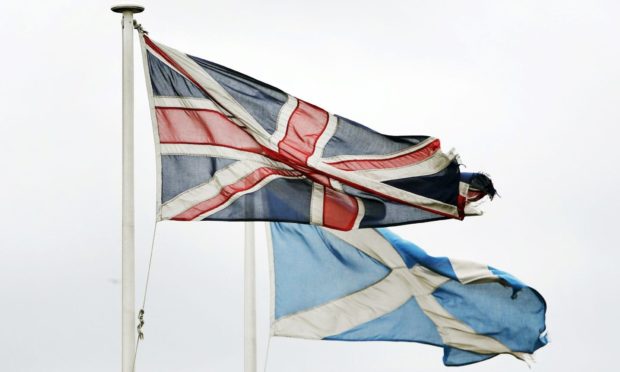A kind reader wrote that my column two weeks ago on hopes of a better world to come from Covid was right, up until the point I dismiss John Swinney’s call for independence.
Surely independence was exactly the kind of big change, leading to a fairer society, that the moment demanded, said Kevin Donnelly.
Here is my response.
We can agree that Brexit is against our wish, Boris is a pain and Scotland has every right to choose her future. What we disagree on is the link between independence and social fairness.
Social justice is often used as a reason for constitutional change. The American revolution, say. And the new regime may set out with justice in mind – the American constitution. But democratic states all revert to the usual tussle of interests, with no guarantee of fairness – America today.
If you have been oppressed and you’ve overthrown the oppressor, then it’s some kind of social justice. But, to quote Alex Salmond at the opening of parliament in 2011: “We are not oppressed”.
The UK is an advanced, stable, just society with good social provision. The SNP’s promise to be better than that is a high bar to aim for.
I’m sure we can both pick away at the Tories and failings on our social provision. That’s why we agree on a “better world”. But neither the Scottish Government nor the SNP spelled out what will be better.
So there is no historic link, no ideological link and no actual link detailed by the SNP.
Set that aside for a moment and consider the process. Let’s assume Scots vote for independence in a confident way – neither the process nor result is ambiguous. The day after this, the divided nation must heal and unite to make things better.
In some as yet unspecified way, Scotland negotiates with the rest of the UK its independence.
The temptation is to look at the SNP’s canon of answers to questions about currency, debt, share of assets et al to see how those negotiations might go. Unfortunately, the positions have not been developed according to reality, but media effectiveness and voter preference. It is, to quote the vogue phrase, meant to look oven-ready. That’s politics.
Like Brexit, the deal will have been done in a few years, with countless bumps in the road, and when everyone is exhausted, that’s it. You and I will not be included in the process. We shall have to accept what’s signed.
With Brexit, Johnson claims to have got all he wanted. Less partial observers might say he actually got about 50% of what he hoped for. Apply that to Scotland – is 50% of what the SNP wants OK? It’s never going to be 100%.
Scotland will have negotiated a share of the largest UK debt ever recorded against a declining asset base. According to the party’s growth commission, oil will be negligible and it will take decades just to get back to current levels of spending, and that was before Covid.
But let’s assume there is enough money to keep all budgets at current levels (though there is no data to indicate this). And let’s assume the first new government is elected on a “fairer society” ticket.
According to the SNP script, this means getting back into Europe. Which means a referendum (another!) which has to be won and then yet more negotiating.
Let’s hope that the Scottish/EU deal goes in our favour, though of course it won’t.
After all that, the voters would then need to feel confident about radical change to public services. Higher spending, new structures, bold thinking. Isn’t that what we mean in practice by the better society?
But Scots never feel like that. In recent decades we appear more socially democratic than England, but have no legislation to prove this. Our Scandi self-image is not supported by the opinion data either, as Sir John Curtis will tell you. We talk left and act centre.
Today’s big problems are social injustice, climate change and Covid. When the likes of Swinney say independence is the answer, I wonder if he’s understood the question. He refers to it as if it were a magic cape – just put it on and we become superheroes. It isn’t. It’s a long, unpredictable sequence of technical negotiating leading to treaty. After that, it’s back to politics as usual.
Even Andrew Wilson of the Growth Commission now says the SNP have yet to produce “a prospectus that is honest and clear about the transition, timings and trade-offs”.
I used to be an idealist. It vexes my soul that I have almost become the whisky priest of the Indy faith. It just never occurred to me that the SNP would use 14 years of government to add nothing to the argument. Or that they would govern so conservatively in that time. We could be fairer now, but aren’t because the SNP won’t allow it.
That’s why I despair at Swinney. But I retain my faith in the Scottish people. The fairer society, Kevin – if not now, when?










